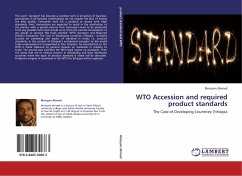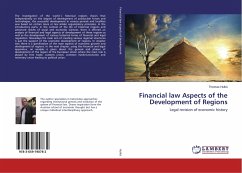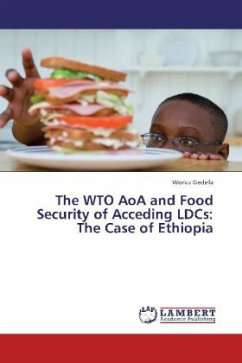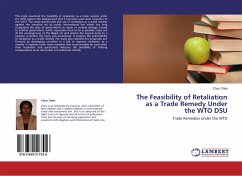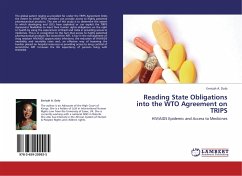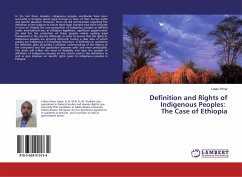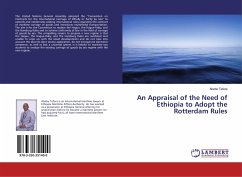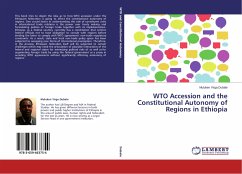
WTO Accession and the Constitutional Autonomy of Regions in Ethiopia
Versandkostenfrei!
Versandfertig in 6-10 Tagen
41,99 €
inkl. MwSt.

PAYBACK Punkte
21 °P sammeln!
This book tries to depict the idea as to how WTO accession under the Ethiopian federation is going to affect the constitutional autonomy of regions. One crucial factor in understanding the role of constituent units in international trade relations is the power over treaty making and formulating policies of foreign trade together with its implementation. Ethiopia, as a federal country, currently has a constitution that confers federal officials not to have obligation to consult with regions before binding the latter to comply with WTO agreements' non-trade regulatory constraints. As a result, s...
This book tries to depict the idea as to how WTO accession under the Ethiopian federation is going to affect the constitutional autonomy of regions. One crucial factor in understanding the role of constituent units in international trade relations is the power over treaty making and formulating policies of foreign trade together with its implementation. Ethiopia, as a federal country, currently has a constitution that confers federal officials not to have obligation to consult with regions before binding the latter to comply with WTO agreements' non-trade regulatory constraints. As a result, state and local non-trade policy space has been subjected to sweeping new forms of international preemption. Therefore, in the process, Ethiopian federalism itself will be subjected to certain challenges which may need the articulation of plausible interactions of the federal and regional states for minimizing political risks of as well as for augmenting foreign trade by using the federal government as a proxy in acceding WTO agreements without significantly affecting autonomy of regions.



